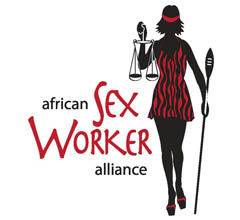 The African Sex Worker Alliance (ASWA), Bar Hostess, Sisonke and SWEAT in conjunction with the Ford Foundation, OXFAM NOVIB, UNDP and OXFAM GB are to launch research on human rights violations against sex workers.
The African Sex Worker Alliance (ASWA), Bar Hostess, Sisonke and SWEAT in conjunction with the Ford Foundation, OXFAM NOVIB, UNDP and OXFAM GB are to launch research on human rights violations against sex workers.
They explain, “Some of the problems sex workers face include murder, systematic and regular violence and rape, stigmatization and marginalization and lack of access to health care clinics. Serial killing is not uncommon with cases reported last year in Uganda, Kenya and South Africa. In many incidents these cases are not investigated. The complexity and vast variations within the sex industry are not embraced and simplified.
Over the past year the African Sex Worker Alliance (ASWA) has conducted two major pieces of research: I expect to be abused and I have fear: Sex workers’ experiences of human rights violations and barriers to accessing healthcare in four African countries and An Exploratory Study of the Social Contexts, Practices and Risks of Men Who Sell Sex in Southern and Eastern Africa.”
The first piece of research was lead by Fiona Scorgie, Daisy Nakato, Phelister Abdalla, Patience Nkomo, Sihle Sibanda, ‘Mpho Netshivhambe and Pamela Chakuvinga. It documents the human rights violations experienced by female, male and transgender sex workers in four African countries (Kenya, Uganda, South Africa and Zimbabwe), and describes barriers they face to accessing health services. Through cross-country comparison and documention of sub-regional trends, the study moves beyond previous often-localized descriptions of violations against sex workers in Africa. The study also fills information gaps about violations in male and transgender sex workers in this setting.
The aim of the second research is to explore the social contexts, life experiences, vulnerabilities and sexual risks experienced by men who sell sex in Southern and Eastern Africa, with a focus on five countries; Kenya, Namibia, South Africa, Uganda and Zimbabwe. As well as seeking to better understand differing and similar socio-cultural scenarios and personal life stories of male sex workers in these countries a key aim was to improve representation of male sex workers in relevant regional organisations, particular within the African Sex Workers Alliance (ASWA) – members of which participated in and supported this research process.
The first research found that sexual violence, perpetrated by police and related authorities, was common across all sites. Some sex workers had experienced this multiple times, often in the form of gang rape by police. Having to bribe the police, “all the time”, was deeply connected with sexual violence. Police demand money or failing this sex, or vice versa. A range of people on the fringes of the sex industry take advantage of sex work criminalisation by extorting money or sex. Clients, according to female sex workers, commonly ignored their wishes or the occurrence of pain. Gang rape was common, and usually took the form of a sex worker agreeing to sex with one client, who has secretly struck a deal with several other men to “take turns” with the sex worker afterwards. Condoms were apparently seldom used in instances of rape, by gangs or otherwise. Across sites, sex workers faced violence for refusing unprotected sex. Once a sex workers’ occupation became known, they were usually despised by family and community members, and in some cases chased away from their homes. Many reported being ostracised by religious institutions (both Christian and Muslim), at times in extreme forms, particularly in east Africa. In general, migrant sex workers’ experiences of being singled out and mistreated reveal much about attitudes in South Africa towards foreigners. Sex workers described many instances of poor treatment once health providers – particularly those in public clinics and hospitals – became aware of their work. They were said to ask invasive and unnecessary questions of sex workers and frequently breached patient confidentiality
The second piece of research is an Exploratory Study of the Social Contexts, Practices and Risks of Men Who Sell Sex in Southern and Eastern Africa, by Paul Boyce, Gordon Isaacs, John Mathenge, Nelson Goagoseb. It explores the social contexts, life experiences, vulnerabilities and sexual risks experienced by men who sell sex in Southern and Eastern Africa, with a focus on five countries; Kenya, Namibia, South Africa, Uganda and Zimbabwe. It further reports on a pilot project run by SWEAT and Sisonke with a specific focus on male sex workers. As well as seeking to better understand differing and similar socio-cultural scenarios and personal life.
The key recommendations are that more experiential and qualitative research should be undertaken. Far too much research has concentrated on epidemiology, and the human face of male sex work within the Diaspora of sex work has been neglected. Personal narratives provide testimony and subjective content which unpacks crucial information that could inform policy, health and ultimately legislation. A clear example from this research was the seminal difference in certain risk factors articulated by the respondents -with a range of responses including substance abuse, childhood factors, abuse, and gender identity struggles.
With the advent of male sex work forums, such as the newly developed ‘Sisonke’ male sex work group in Cape Town – ASWA might readily embrace male and transgendered sex work into its coalition strategies to promote human rights, counteract gender based violence and strive towards legal reform. Male sex work is often mistaken as an adjunct of homosexuality, and male sex work traverses the boundaries of hetero and homo- normative polarities and meanings. Male sex work must be included in the debate of African prejudice towards homosexuality and men who have sex with men. With a more visible and coherent male sex work initiative linked to an African coalition – such as Sisonke/ASWA – human sexuality, can be placed in a context which is substantially more powerful when engaging with moral codes that fundamentally obfuscate the reality on the ground.”
Theme:

